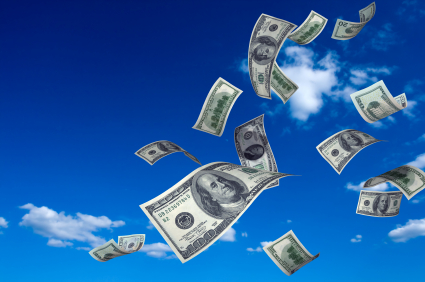What can brown do for you? Apparently, quite a bit. Nationwide is on your side? You betcha! But let us not forget about Mom and Pop.
In a recent article by Forbes’ Susan Adams, reporting on the Chronicle of Philanthropy’s survey, it was found that the top twelve “most generous” U.S. companies gave away over $1 billion over the past fiscal year. Although that number probably seems rather low considering the philanthropy of Wal-Mart alone totals $1.3 billion, the report of the survey sought to emphasize the measurements on relative generosity. In other words, the rankings looked at giving as a share of profits.
Since the Internet can’t resist a good list, the top twelve companies were: 1) Alcoa, 2) Safeway, 3) UPS, 4) Bank of America, 5) State Farm Mutual Automobile Insurance, 6) Kroger, 7) Metlife, 8) Target, 9) Nationwide, 10) Dow Chemical, 11) Goldman Sachs Group, and 12) Exelon. Leading off, Alcoa gave 12.1 percent of profits; at the bottom of the list, Exelon gave away 2 percent.
While I’m admittedly opposed to “lists” propagating philanthroshaming (as we were reminded by Martin Morse Wooster late last week), I find the objective of this Chronicle of Philanthropy survey reputable. By aiming to point out the most charitable for-profit entities, the list implies acknowledgement on the cusp of gratitude as well as positive incentives. Additionally, the list includes inspiring anecdotes and keen observations from the field.
However, though the aim of the survey is seemingly honorable, the population that it observes perpetuates the preoccupation with Big Business Philanthropy. Despite the label “most generous company,” the survey only looks at the “150 U.S. companies with the highest revenues.” In other words, just receiving the survey was more selective than the Fortune 500. While I am of course not opposed to formulating a list of the “Most Generous Top-Earning Companies,” I do think the label “Most Generous Company” is a bit of a misnomer – particularly, when the inferences drawn do not match the methods employed.
Last year, when Forbes reported on “America’s Most Generous Companies,” they looked at The Chronicle’s rankings for total cash contributions. Unsurprisingly, they found other top-earning companies leading the list – Wells Fargo, Wal-Mart, and Chevron to name a few. In this case, though, the conclusion made sense: by not including a denominator (that is, by not dividing giving by profits), the label “most generous” seems properly ascribed.
However, Forbes’ switch to focusing on the percents in the report denotes a misunderstanding of the title. If we are looking at share of profits, shouldn’t the list at the very least include small businesses in its analysis? In an era where small businesses are increasingly recognizing the benefits (and not just bottom lines!) of philanthropy, it is entirely plausible that there is at least one small business that gives out a greater percentage than Alcoa. Considering the millions of small businesses in the U.S, it appears safe to say that focusing on the “150 U.S. companies with the highest revenues” is a rather confined sample population.
“America’s Most Generous Companies”? Close. Instead, try “America’s Most Generous Top-Earning Companies.” Though not as flashy, swanky, and ostentatious as its big business counterpart, small businesses should not be forgotten in this noteworthy survey.







Great article! I too am frustrated by the fact that smaller companies aren’t included in Forbes’ list. Newman’s Own donates 100% of their profits to charity and yet if you search Google for “generous businesses” the first two links that pop up are these Forbes lists of companies where the most generous donates 12%. Don’t get me wrong 12% of profits is very generous, but more credit should be given to smaller companies that pour all of their earnings into making positive change in the world.